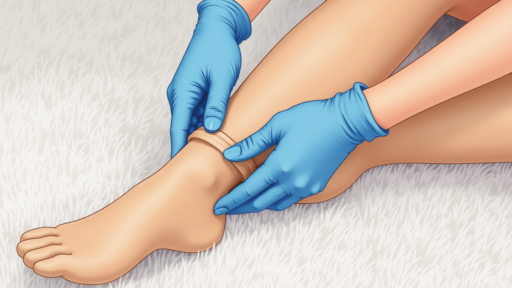Do you have varicose veins or issues with leg pain or swelling? If you’re looking into treatments, you’ve probably heard of vein ablation. But did you know there are different types of ablation to treat varicose veins? Each option has its own benefits, depending on your specific needs and the size, location, and condition of your veins.
Let’s break down the different types of ablation treatments so you can feel confident in your options and find relief.
What is Vein Ablation?
Vein ablation is a minimally invasive way to close off problematic veins that aren’t working properly. When veins have trouble sending blood back to your heart, the blood can pool in your legs, causing pain, swelling, and those pesky varicose veins. Ablation treatments close these problem veins, helping your blood flow through healthier veins.
Types of Vein Ablation: Finding What’s Right for You
There are three main types of ablation treatments: thermal ablation, non-thermal ablation, and high-intensity focused ultrasound (HIFU). Each of these has its own technique and benefits, and your doctor will help decide the best one based on your needs. Here’s how they work:
1. Thermal Ablation: Using Heat to Seal Veins
- How It Works: Thermal ablation uses heat (usually from radiofrequency or laser) to seal the vein. A protective solution called tumescent is injected around the vein to keep surrounding tissues safe from the heat.
- Best For: Larger veins and areas where heat treatment is safe.
- Considerations: Because this method uses heat, tumescent fluid is necessary. This means you might feel a few needle sticks as the doctor injects the fluid.
2. Non-Thermal, Non-Tumescent Ablation: Treating Veins Without Heat or Needles
- How It Works: This method doesn’t involve heat, so there’s no need for tumescent injections. Options include:
- Glue (Cyanoacrylate): A medical adhesive that seals the vein shut.
- Sclerotherapy: A chemical injection that irritates the vein walls, causing them to close.
- Mechanical Occlusion with Chemical Assistance (MOCA): This combines a mechanical device with a chemical solution.
- Best For: Patients who want to avoid needle sticks or those with sensitive skin.
- Considerations: Non-thermal methods may be a better choice for veins near the skin’s surface or when treating smaller veins.
3. High-Intensity Focused Ultrasound (HIFU)
- How It Works: HIFU uses focused sound waves to heat and close off the vein. This method is still new, and not all clinics offer it.
- Best For: Specific cases where other methods aren’t suitable.
- Considerations: Since it’s less common, you may need to find a specialized center for this treatment.
Choosing the Right Ablation Treatment
Your doctor will consider several factors to help choose the best treatment for your veins. Here are some things they’ll think about:
- Vein Size: Larger veins may respond better to thermal ablation, while smaller veins might be treated with non-thermal methods.
- Vein Location: For veins close to the skin or near nerves, non-thermal methods are safer to avoid burns or nerve damage.
- Past Blood Clots or Inflammation: If you’ve had superficial vein thrombosis (a small clot or inflammation), your vein might be tricky to treat with glue or laser. Sclerotherapy may be a better option here.
- Anxiety and Sensitivity: If needles make you nervous, a non-thermal option might be the most comfortable choice since it doesn’t require tumescent injections.
What to Expect During Vein Ablation
The procedure usually takes under an hour, and most patients can go home the same day. Here’s a quick look at what you can expect:
- Preparation: Your doctor will numb the area to keep you comfortable.
- Procedure: Using ultrasound to guide them, the doctor inserts a tiny catheter (tube) or needle into the problematic vein.
- Ablation: Depending on the method, they’ll either apply heat, glue, or a chemical solution to close off the vein.
- Recovery: You may need to wear a compression stocking for a few days, and you can generally return to daily activities right away.
Final Thoughts:
Varicose veins and other vein problems don’t have to keep you from living life comfortably. With several effective ablation options available, there’s likely a treatment that will work for you. Talk to your vein specialist to find out which ablation technique is the best fit.




